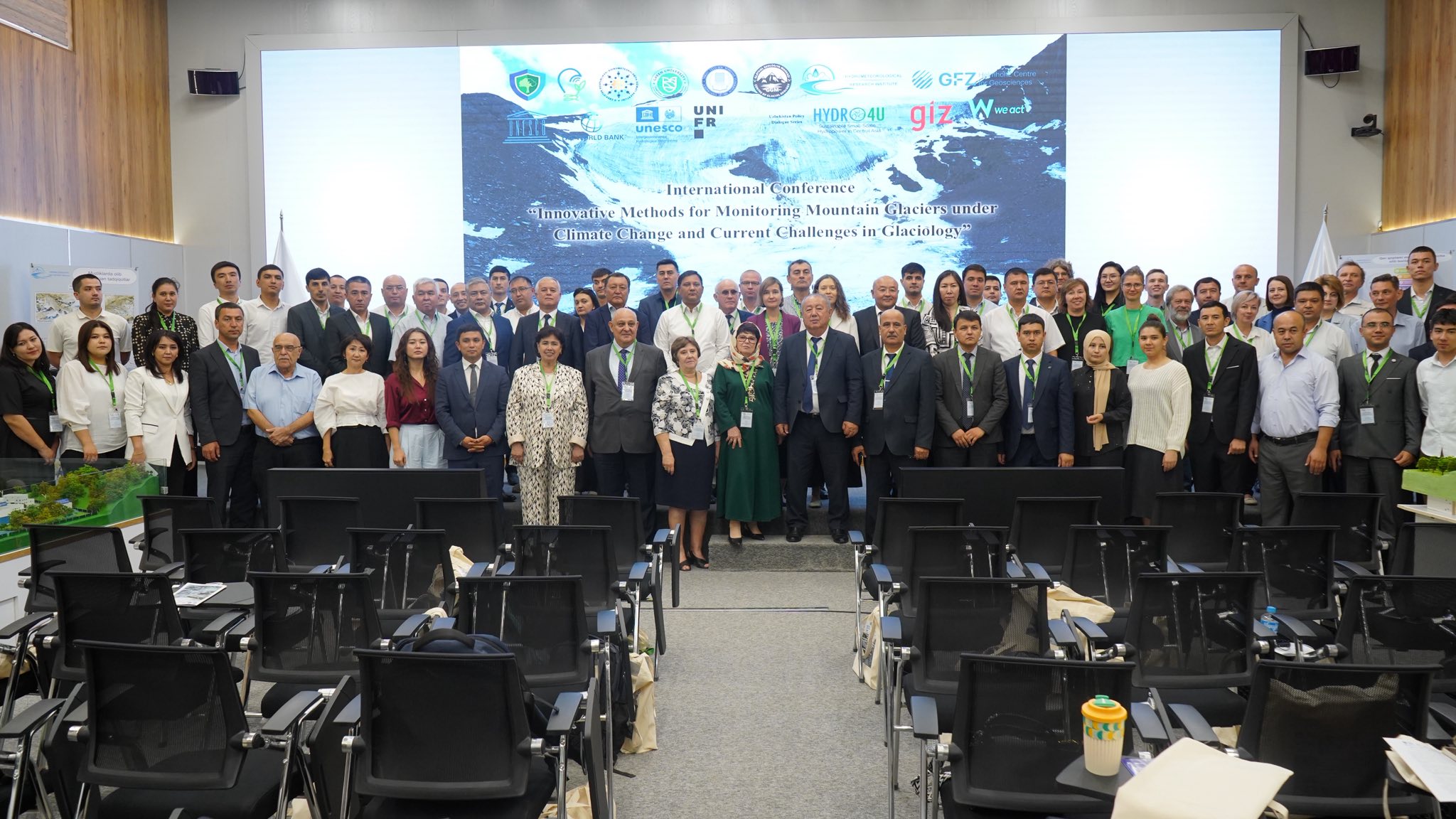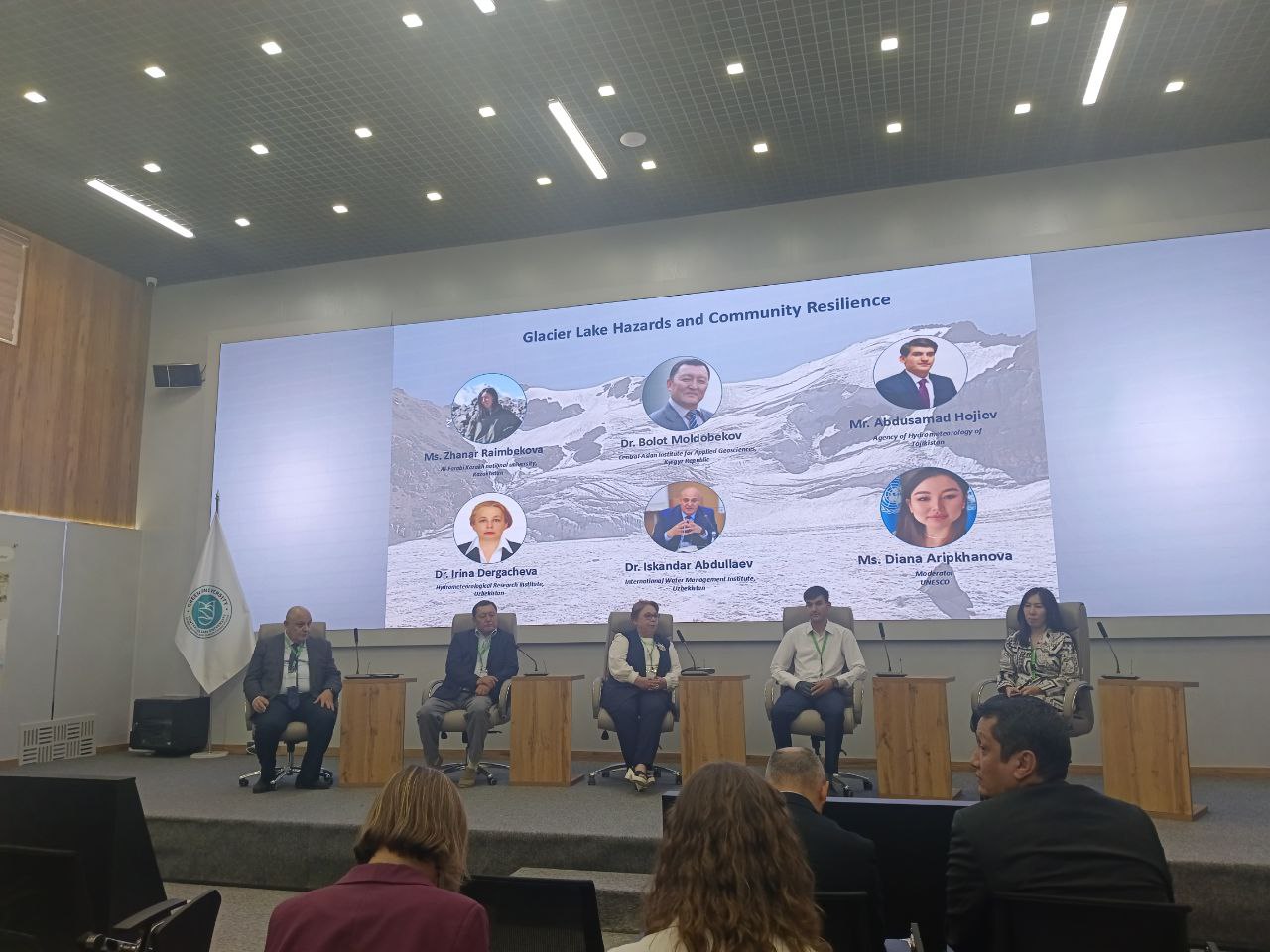No. 82 (606) September 2025
International Conference on Innovative Glacier Monitoring Methods
On September 16, the Central Asian University of Environmental and Climate Change Studies (GREEN UNIVERSITY, Tashkent) hosted the International Conference “Innovative Methods for Monitoring Mountain Glaciers under Climate Change and Current Challenges in Glaciology.” The event was organized by the Hydrometeorological Research Institute (NIGMI) with the support of international partners.
The conference focused on advancing research, sharing experiences, and introducing innovative methods for monitoring mountain glaciers, analyzing the impacts of climate change on the cryosphere, and developing practical recommendations for water management and climate risk reduction. Particular attention was paid to accelerated melting of glaciers and the risks of glacial lake outbursts; the role of glaciers in river runoff generation in Central Asia; digital platforms and tools such as MODSNOW and the World Glacier Monitoring Service (WGMS); and the integration of cryosphere data into water, energy, food, and ecosystem (WEFE Nexus) management.

The event brought together leading glaciologists, climatologists, environmentalists, and representatives of governmental and international organizations from Central Asia and beyond to discuss the latest scientific findings and exchange practical knowledge in the field of glaciology. The conference was held as part of the International Year of Glaciers’ Preservation, 2025.
Welcome remarks were delivered by Aziz Abdukhakimov, Minister of Ecology, Environmental Protection and Climate Change of Uzbekistan, as well as representatives of UNESCO, GIZ, and other international organizations. The Conference agenda included a plenary session with keynote speeches by international experts (UNESCO, GFZ Potsdam, University of Fribourg, and others); thematic sessions on glacier and snow cover monitoring, river runoff forecasting, and risk management; and panel discussions on integrating scientific data into decision-making processes, along with a review of experiences from international projects such as Hydro4U, WE-ACT, and others.

Lola Sychugova and Gulnoza Khamdamova took part in the Conference on behalf of SIC ICWC. The knowledge gained will contribute to SIC’s ongoing and future initiatives.
The Conference served as a key regional platform for exchanges, discussion of challenges, and joint search for solutions. The findings from this Сonference hold importance for the scientific community, as well as for government agencies tasked with water planning and climate change adaptation.